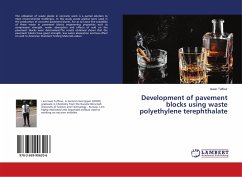In order to preserve an appropriate quality of road assets, it is necessary to design high level rehabilitation construction processes. For ensuring durability of the rehabilitated pavement, a profound knowledge of its inventory, condition, traffic and environmental parameters is presupposed to be available. However, reliable information content of this kind is not necessarily available in data banks, especially in consideration that the gradual (even century-long) strengthening and/or widening of road pavement structures is being rather typical. Pavement rehabilitation methodology as presented here is recommended to be applied in countries missing the necessary input data. Main steps of the design methodology: the Client's data supply and dispositions, a thorough site condition survey and an evaluation, deflection measurements in selected points of the pavement, additional laboratory tests, choosing design subsections, corrections of the thickness of the new asphalt layer and calculation of strain in the wearing course. This technique can significantly contribute to the long life of rehabilitated roads, being very efficient for countries where limited highway funds are available.
Bitte wählen Sie Ihr Anliegen aus.
Rechnungen
Retourenschein anfordern
Bestellstatus
Storno








